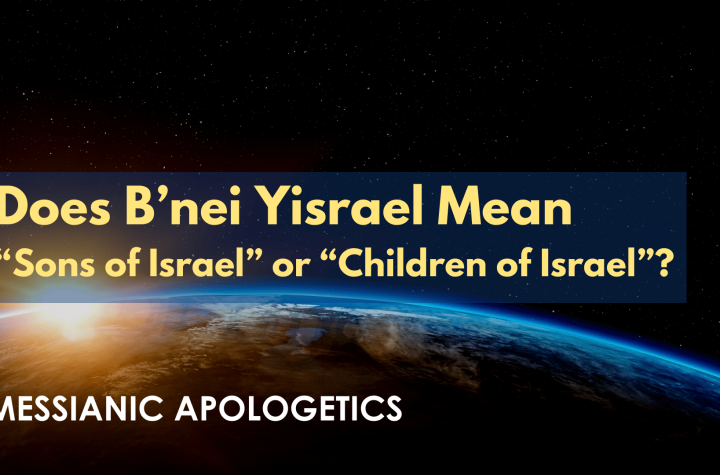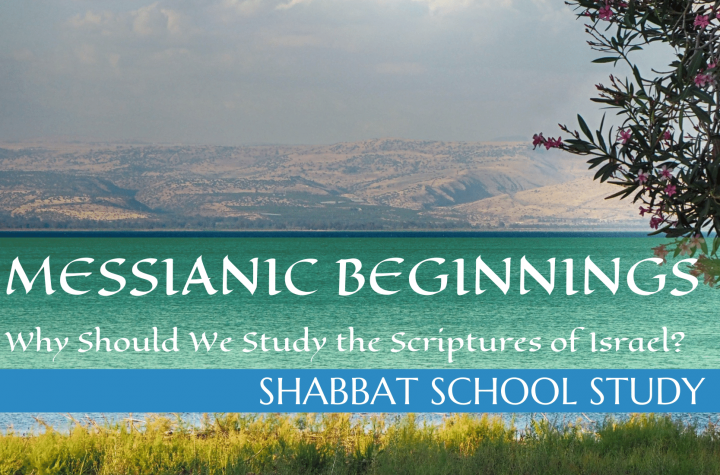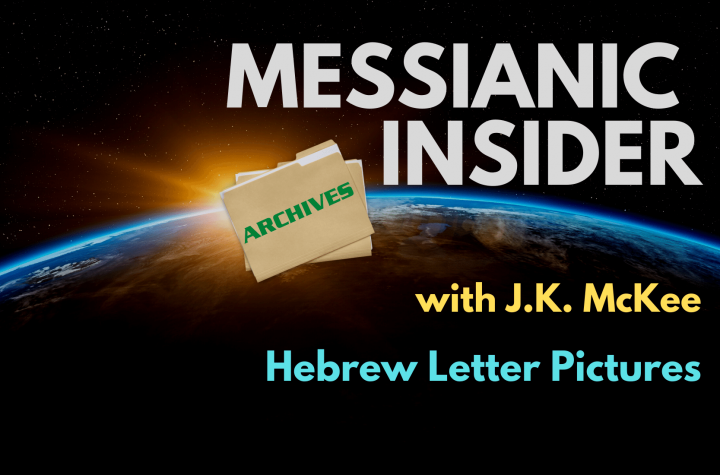John McKee discusses the controversy over whether the Hebrew terminology b’nei Yisrael is best understood to be restrictive as “sons of Israel,” or more inclusive as “children of Israel.”
Hebrew
J.K. McKee of Messianic Apologetics goes through the study questions for Ch 1 in the Messianic Beginnings workbook:
1. Explain some of the reasons why Believers should study the Tanakh, the Scriptures of Israel.
2. What does being a Hebrew or Ivri mean? What are some spiritual applications of this?
3. In what context were the Patriarchs “Hebrews”? What did Biblical characters such as Abraham, Moses, and David do to make them “Hebrews”?
4. Explain some of the similarities and differences between the Jewish book and verse order of the Tanakh, versus that of the Christian Old Testament. Do you think these are significant? Why or why not?
5. Explain how Hebrew is an action-oriented language. Look up several passages in the Tanakh and how they might reflect our relationship to God.
6. Using the examples discussed in the chapter, how reverent were the people when the Torah was read publicly? What are some applications that can be drawn?
7. Have you ever been taught in your denominational tradition that Yeshua (Jesus) was a Torah obedient Jew, or that He at least followed some of the Old Testament commands? How might this change your perception of what you have been taught in the past?
8. Have you ever been taught that the Disciples and Apostles were Torah obedient, First Century Jews? How might this change your perception of what you have been taught in the past?
9. Using the examples given in the chapter, why do you think so many people believe that the Apostle Paul opposed the Torah? What challenges relating to Paul’s letters do you foresee when reading them?
10. How do you think that more consciously studying the Tanakh, the Scriptures of Israel, will change various aspects of your spiritual walk?
Mark Huey of Outreach Israel Ministries discusses the great significance of how increasing numbers of Believers in the Messiah Yeshua (Christ Jesus), who worship the God of Abraham, Isaac, and Jacob, are studying more and more about the ancient origins of their faith in the Scriptures of Israel. Something is happening among people as the Bible is being reexamined to dig for truths which have often been overlooked by the masses of Christianity. Thousands are being encouraged to return to the foundations of our faith in the Tanakh (Old Testament), and it is deepening their walk and commitment to the Lord.
Is there any academic validity with Hebrew letter pictures, i.e., interpreting various Hebrew words through the representations of each letter in its spelling?
J.K. McKee of Messianic Apologetics discusses the challenges of how too many people are stuck using the Strong’s Concordance dictionary for Hebrew and Greek, when there are many other, more useful tools available.




